Second Cabinet of J. B. M. Hertzog
6th Cabinet of Union of South Africa (since 1909 South Africa Act) | |
| 1929 | |
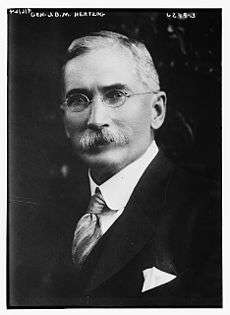 J.B.M. Hertzog (c. 1920) | |
| Date formed | 14 June 1929 |
| Date dissolved | 17 May 1933 |
| People and organisations | |
| Head of state | King George V |
| Head of government | J. B. M. Hertzog |
| No. of ministers | 11 |
| Member party | National Party Labour Party |
| Status in legislature | Coalition |
| Opposition party | South African Party |
| Opposition leader | Jan Smuts |
| History | |
| Election(s) | 1929 |
| Legislature term(s) | 3 years, 11 months and 3 days |
| Predecessor | Hertzog I |
| Successor | Hertzog III |
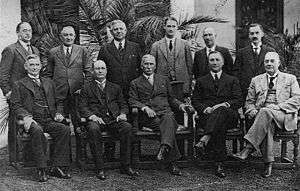
(c.1929)
Front (left to right):Frederic Creswell, D.F. Malan, J.B.M. Hertzog, N.C. Havenga and P.G.W. Grobler.
Back (left to right) Oswald Pirow, Jan Kemp, Adriaan Fourie, E.G. Jansen, Henry Sampson and C. Malan.
Front (left to right):Frederic Creswell, D.F. Malan, J.B.M. Hertzog, N.C. Havenga and P.G.W. Grobler.
Back (left to right) Oswald Pirow, Jan Kemp, Adriaan Fourie, E.G. Jansen, Henry Sampson and C. Malan.
Cabinet
| Post | Minister | Term | Party | ||
|---|---|---|---|---|---|
| Prime Minister |  |
1929 | 1933 | National Party | |
| Minister of External Affairs | |||||
| Minister of Agriculture | 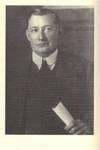 |
1929 | 1933 | National Party | |
| Minister of Defence | 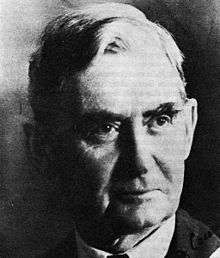 |
1929 | 1933 | Labour Party | |
| Minister of Labour | |||||
| Minister of Education |  |
1929 | 1933 | National Party | |
| Minister of Interior Affairs | |||||
| Minister of Public Health | |||||
| Minister of Finance | 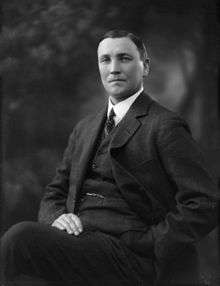 |
1929 | 1933 | National Party | |
| Minister of Irrigation | 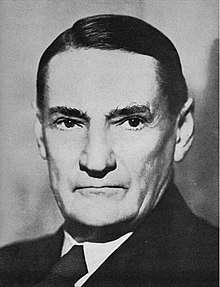 |
1929 | 1933 | National Party | |
| Minister of Native Affairs | |||||
| Minister of Justice | The Hon. Oswald Pirow MP | 1929 | 1933 | National Party | |
| Minister of Lands |  |
1924 | 1933 | National Party | |
| Minister of Mines and Industry | The Hon. Adriaan Fourie MP | 1929 | 1933 | National Party | |
| Minister of Posts and Telegraphs | The Hon. H.W. Sampson MP | 1928 | 1929 | Labour Party | |
| Minister of Public Works | |||||
| Minister of Railways and Harbours |  |
1929 | 1933 | National Party | |
Sources
- "Geocities – South Africa". Geocities (Web Archive). Archived from the original on 16 October 2007. Retrieved 16 October 2007.
gollark: It's weirdly ordered, scroll up.
gollark: It has more of a dramatic flair.
gollark: Roman numerals are an entirely valid system to represent numbers, but fine.
gollark: Fine. I will add numbers to each paragraph.
gollark: You can quote from them, if you like.
This article is issued from Wikipedia. The text is licensed under Creative Commons - Attribution - Sharealike. Additional terms may apply for the media files.